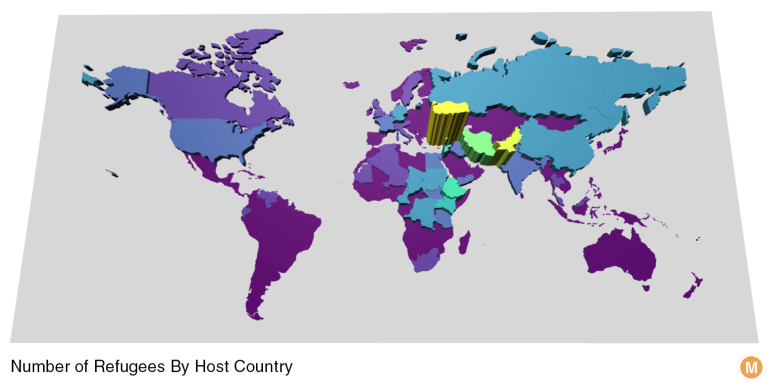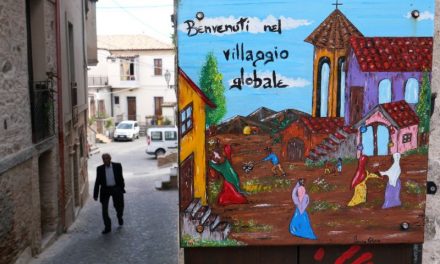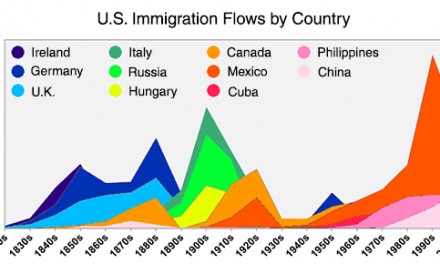By Max Galka
Based on data from the UN Refugee Agency, approximately 4.4 million asylum applications were submitted to 44 industrialized countries between 2013 and 2016. The map below shows the flow of these asylum seekers from their country of origin to the country in which they applied for asylum. Each point represents 500 asylum seekers.
To navigate around the map with a mouse:
- Pan: left mouse button + drag
- Rotate: right mouse button + drag
- Zoom: both buttons + drag / two-finger touchpad scroll
For better viewing, try the Full screen version / Youtube video
Asylum seeker vs refugee
An asylum seeker is someone who has requested sanctuary from persecution in their home country. If the request is granted, the asylum seeker then becomes a refugee. In some cases, a host country may not have a formal process for evaluating asylum requests for all migrants crossing its border seeking refuge, in which case these displaced persons become “prima facie” refugees.
The map above displays the flow of asylum seekers into industrialized nations, which makes up only a small piece of the global refugee crisis. As of the end of 2015, there were about 16 million refugees globally, and a much larger number of displaced persons who did not qualify as refugees under the U.N. statue.
The countries hosting the largest number of refugees are all in the developing world. No industrialized nation features in the top 10.
Which countries host the largest refugee populations?
This map shows how the world’s 16 million refugees are distributed by country. To take a closer look, see the interactive map.
The seven largest refugee populations are in Turkey, Pakistan, Lebanon, Iran, Ethiopia, Jordan, and Kenya, respectively. Together they host more than half the world’s refugees.
Credit:
- Built with Blueshift.
- Asylum seeker and refugee data from the UNHCR: Asylum seekers monthly, UNCHR Statistical Yearbook 2015.
- Credit to Lucify for their outstanding project from last year, The flow towards Europe.
Read more at metrocosm.com







Recent Comments